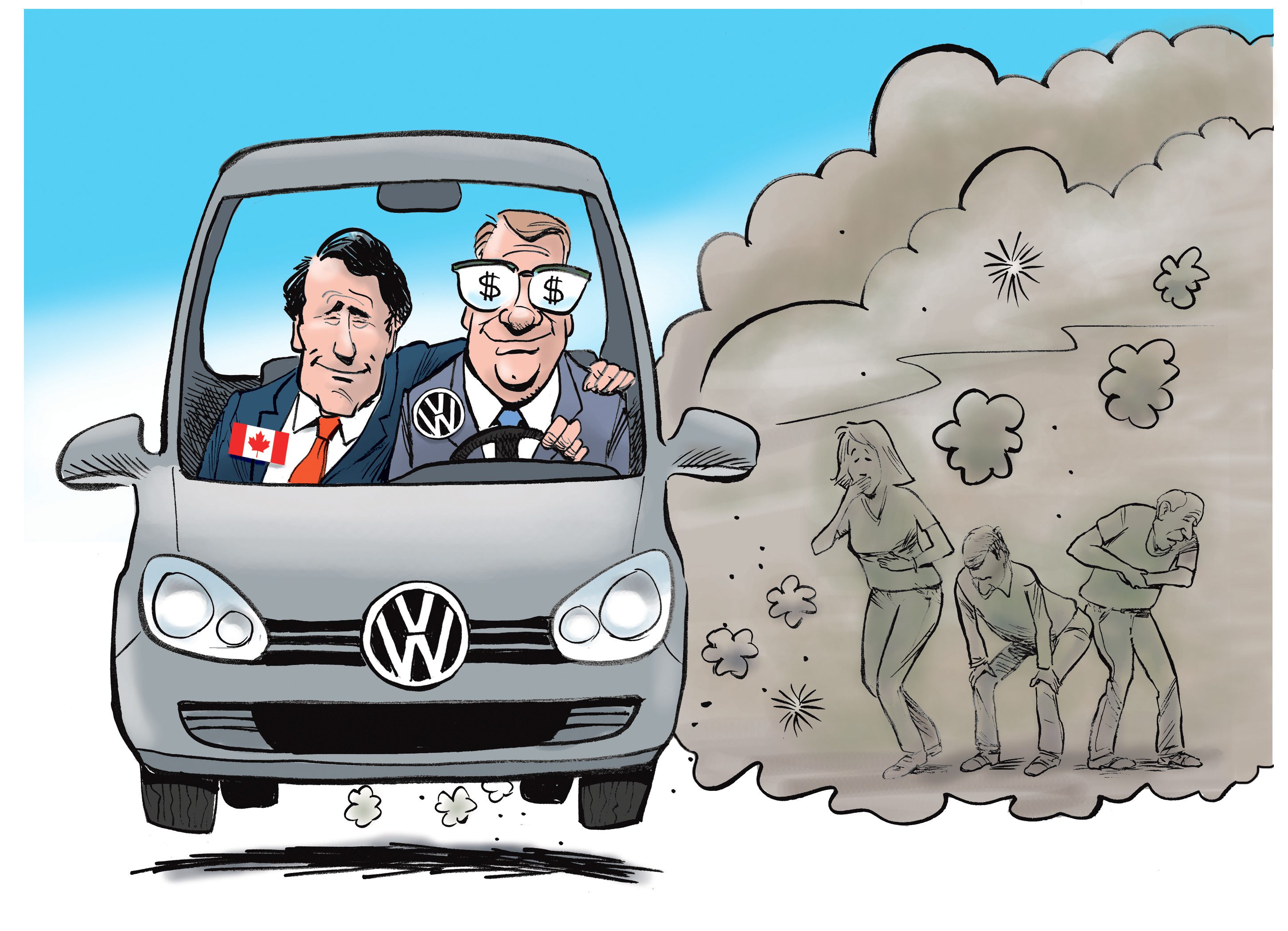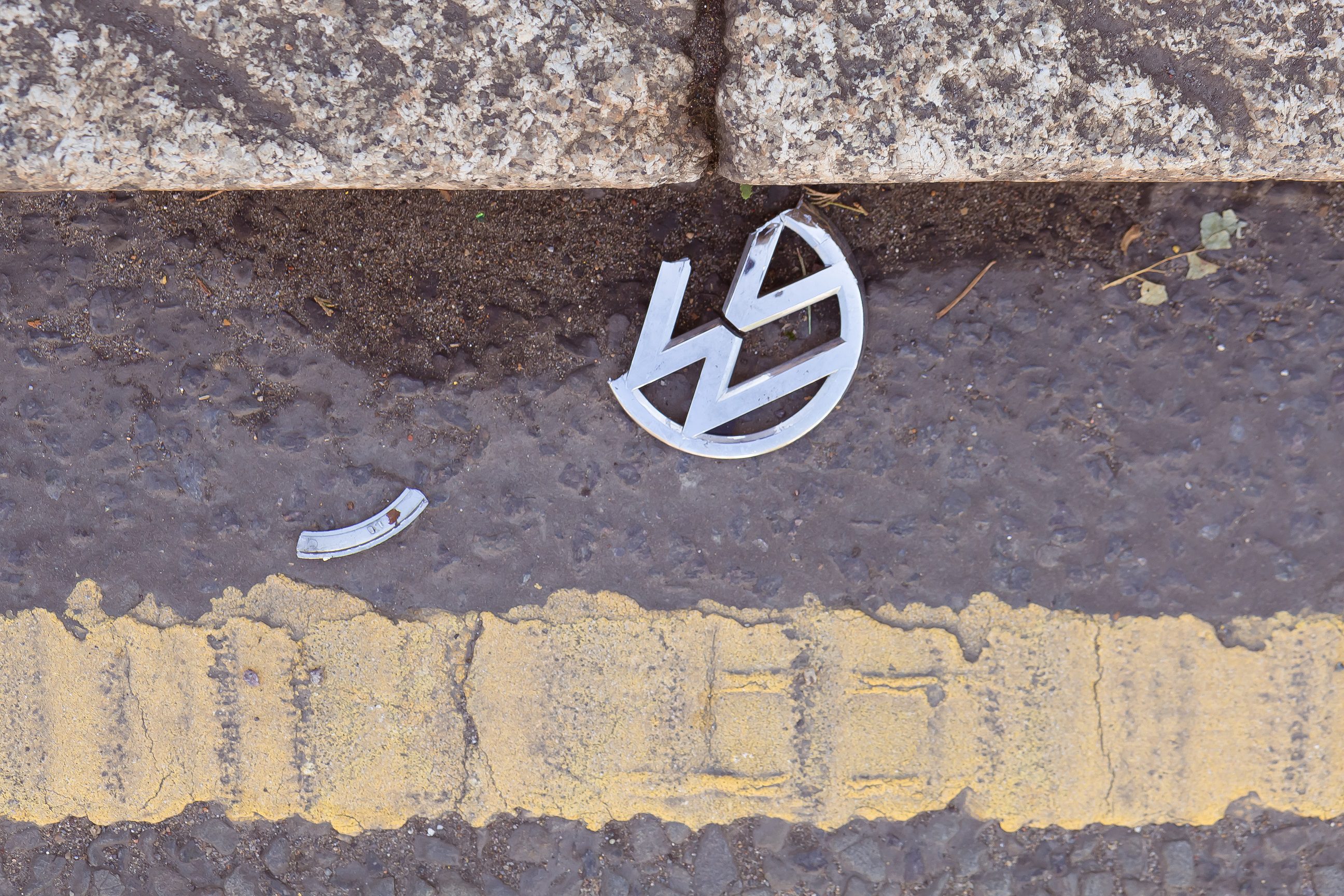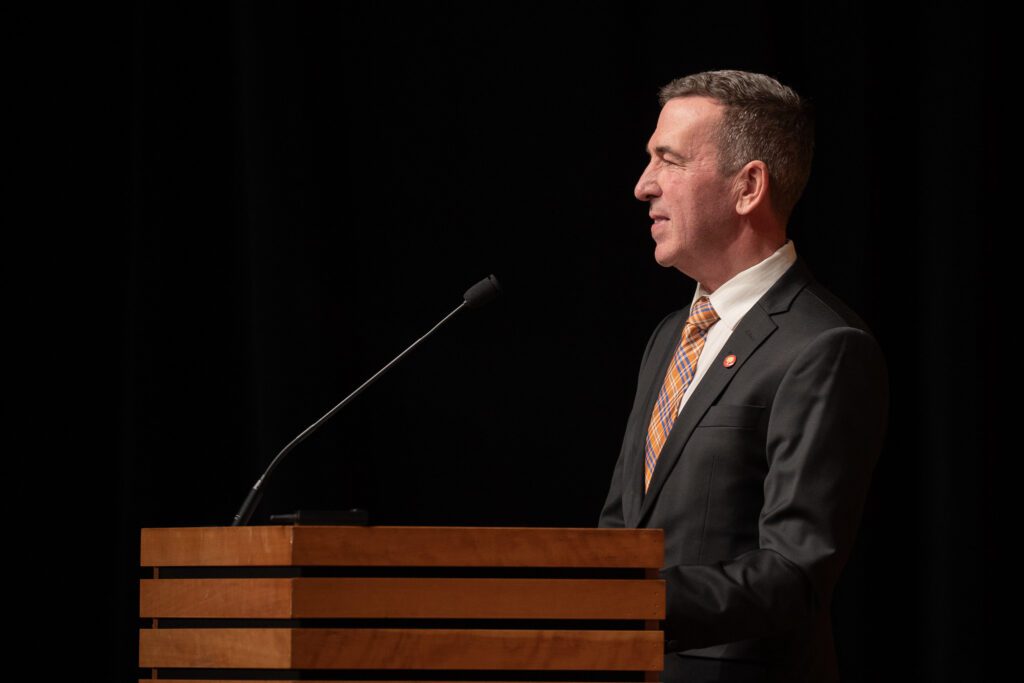Last month, an Ontario court ordered Volkswagen (VW) to pay $196.5 million in criminal fines for importing nearly 128,000 cheating diesel vehicles that violated Canadian emission rules. This verdict was celebrated by the court and federal government as “a new era of environmental protection” as it was the largest environmental payout by a company in Canada. But a closer look at the VW case reveals a grim picture of Canada’s stance on environmental crime.
Dieselgate: An Environmental Crime of Deadly Proportions
In 2015, VW got caught cheating emission rules around the world by installing a defeat device in 11 million of its so called “clean diesel” vehicles, including those under its luxury banners Porsche and Audi. The defeat device deceived regulators by lowering the levels of toxic nitric oxides (NOx) emitted from vehicle exhausts to the legal limits during lab tests. On the road, it was a whole other story: each car spewed up to 35 times the allowed levels of NOx.
In Canada alone, VW imported and sold 128,000 of these rigged vehicles whose dirty emissions were equivalent to the emissions of up to 4.5 million legal cars!
Rightfully, VW’s deception caused outrage globally and compelled regulators in the U.S. and Germany to take quick and decisive action. But in Canada, the situation was notably different.
Here are the top 4 reasons why VW got away with paying the real cost of its crime in Canada:
- Canada delayed action and fought public demands for a transparent investigation
Soon after VW admitted to rigging its vehicles in 2015, the federal government announced opening an investigation into the company’s misconduct. Fast forward to July 2017, VW had pleaded guilty to criminal charges laid by U.S. regulators and paid billions in criminal and civil fines. Meanwhile, the Canadian government made no public progress in its investigation, even though the company continued to sell non-compliant cars after completing a half-fix.Frustrated by the lack of progress and of civil-based options to directly prosecute VW, I alongside Tim Gray, our Executive Director, represented by legal experts at Ecojustice, submitted an official request to the Ministry of Environment and Climate Change (ECCC) to transparently investigate the unlawful importation, sale and false reporting by VW and its subsidiaries as required by the Canadian Environmental Protection Act (CEPA).
Instead of granting our request and siding with Canadians, the Ministry refused to start a transparent investigation into the infractions they claimed were already being investigated, i.e. the importation and sale of these cars. This essentially meant that the government would not be legally obligated to update the public about its investigation. We believe that decision went against the public participation rights guaranteed by CEPA so we took the issue to federal court.


- The federal government negotiated charges with VW before any charges were laid
At last, on the morning of December 9, 2019, Canadian federal prosecutors laid 60 charges against VW for importing 128,000 cheating vehicles and for misleading the government. Hours later, news broke that the government and VW’s German head office arranged for a court hearing scheduled four days later to present a plea deal. As was later confirmed in court, this arrangement made it clear that federal prosecutors had negotiated the charges with the company before any charges were laid – a highly unusual process for a criminal case. - The federal government made sure to keep victims out of the court hearings
Because of the dubious negotiation deal between prosecutors and VW, Environmental Defence and Ecojustice wanted to ensure that the court hears directly from the victims affected by VW’s crimes. I requested to present a Community Impact Statement to speak to the adverse health and environmental impacts of VW’s scandal – a standard process in criminal prosecutions.Unfortunately, government prosecutors made considerable effort to prevent me from speaking to the serious impacts on the communities exposed to dirty diesel emissions. By contrast, U.S. prosecutorsinvited the public to submit impact statements during its prosecution of VW. The Community Impact Statement was especially critical because VW challenges the fact that excess diesel emissions cause people to get sick or die prematurely as proven by an overwhelming body of scientific research and confirmed by Health Canada. Volkswagen, through its lawyers, stated in court on December 13, 2019, that “harm to human health … is denied and disputed by Volkswagen in these proceedings.”
- Minimal charges means minimal penalty
Federal prosecutors also failed to use the full force of the law to penalize VW for its crimes. While the U.S. charged VW for selling cheating cars and committing fraud and conspiracy, the Canadian charges only covered the import of cars and misleading government regulators.The way the charges were packaged further minimized the maximum legal penalty. For example, the importation of 10,269 model year 2011 Volkswagen Jettas were counted as only one offence, instead of 10,269 separate offences. To put it into perspective, the criminal fine for each car came to $1,450 – an amount likely much smaller than the profit generated by each car. To add insult to injury, the total fines negotiated by VW were a tiny fraction of the fines it paid in the U.S., much of which is now being used to clean up pollution and build electric vehicle stations.
The way Canada handled the worst environmental crime in history was flawed and improper. But the silver lining of this fiasco might be that the VW scandal has served as a wake up call for the country to start taking environmental crimes seriously.







